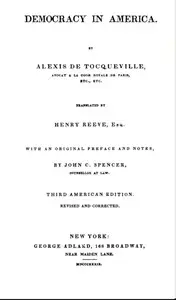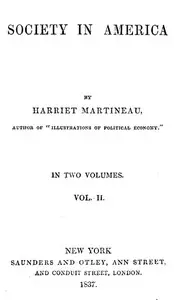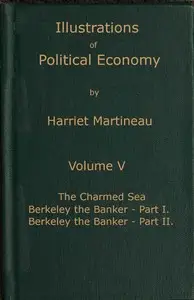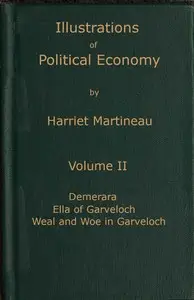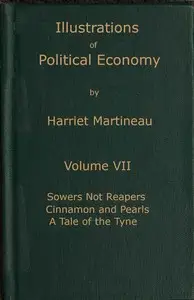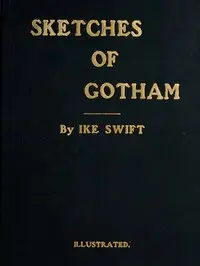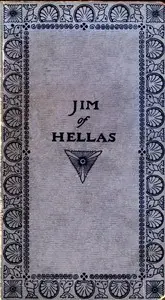"Society in America, Volume 1 (of 2)" by Harriet Martineau is a look into the United States during the 1800s. It's like taking a trip back in time to see what America was really like, through the eyes of someone who was there. The book explores how the country worked, from its government to its money, and even how people treated each other. Martineau shares what she saw and learned as she traveled around, meeting different people and visiting different places. She thinks about whether America was really living up to its big ideas or not. What makes this book so special is to see past beliefs and issues people faced while comparing how well everyday life lined up with the country's democratic dreams.
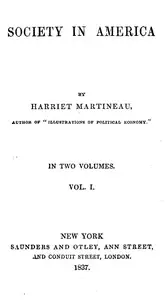
Society in America, Volume 1 (of 2)
By Harriet Martineau
A traveler explores nineteenth-century America to find out if its high ideals match its everyday realities.
Summary
About the AuthorHarriet Martineau was an English social theorist. She wrote from a sociological, holistic, religious and feminine angle, translated works by Auguste Comte, and, rarely for a woman writer at the time, earned enough to support herself. The young Princess Victoria enjoyed her work and invited her to her 1838 coronation. Martineau advised "a focus on all [society's] aspects, including key political, religious, and social institutions". She applied thorough analysis to women's status under men. The novelist Margaret Oliphant called her "a born lecturer and politician... less distinctively affected by her sex than perhaps any other, male or female, of her generation."
Harriet Martineau was an English social theorist. She wrote from a sociological, holistic, religious and feminine angle, translated works by Auguste Comte, and, rarely for a woman writer at the time, earned enough to support herself. The young Princess Victoria enjoyed her work and invited her to her 1838 coronation. Martineau advised "a focus on all [society's] aspects, including key political, religious, and social institutions". She applied thorough analysis to women's status under men. The novelist Margaret Oliphant called her "a born lecturer and politician... less distinctively affected by her sex than perhaps any other, male or female, of her generation."


